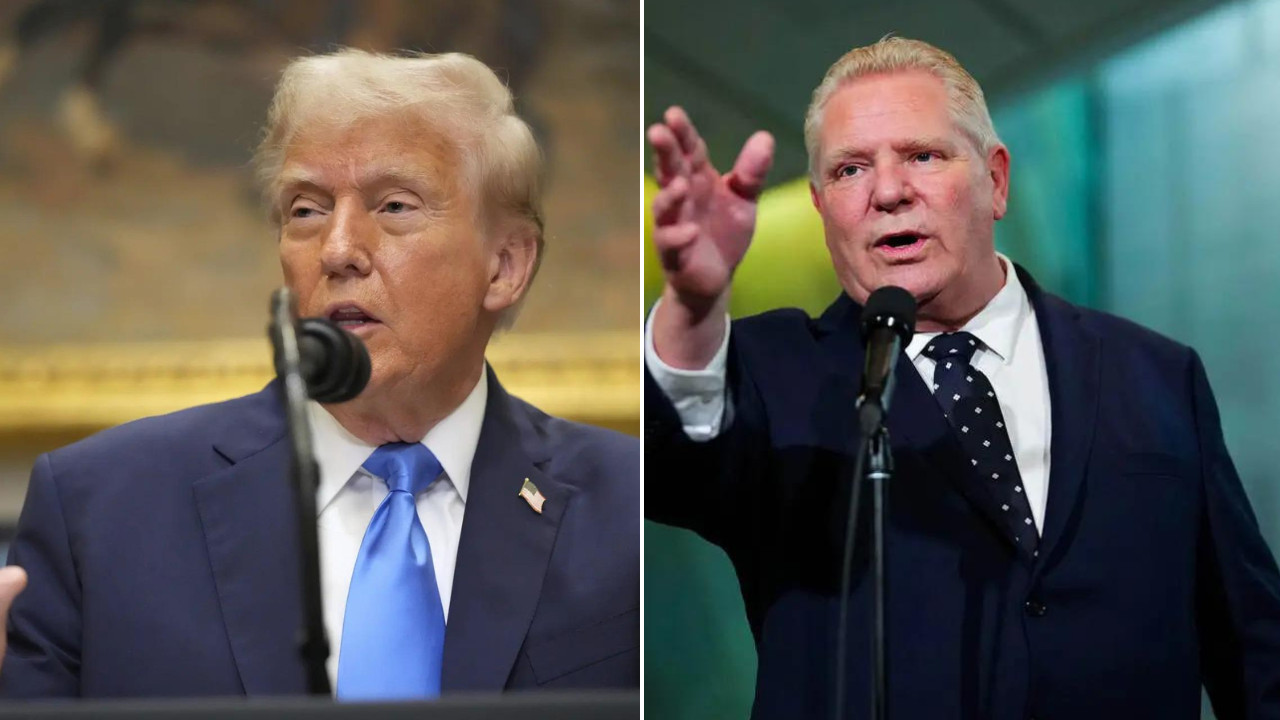Ontario Premier Doug Ford has paused an anti-tariff advertisement campaign. This move follows US President Donald Trump’s decision to end trade negotiations with Canada. The campaign aimed to highlight the impact of tariffs on American workers and businesses. Ford stated the intention was to start a conversation about the economy.
The Ad That Got Under Trump’s Skin: Did Canada’s Commercial Really Halt Trade Talks?
Remember the days of hard-hitting political ads? Well, Canada recently pulled one that seems to have ruffled some feathers south of the border, specifically those belonging to Donald Trump. The ad, a thinly veiled critique of American trade policy and tariffs imposed during his presidency, apparently didn’t sit well with the former president. But did its removal actually pave the way for renewed trade negotiations, as Trump claimed? Let’s unpack this.
The commercial in question, funded by the Canadian government, aired during prime time in key American markets. It highlighted the potential economic damage caused by tariffs on Canadian goods and made a strong case for fair and open trade between the two nations. Its message was clear: tariffs hurt both economies, and a cooperative approach is the only path forward.

Now, whether this ad was a stroke of genius or a diplomatic misstep is certainly up for debate. Some might argue it was a necessary move to defend Canada’s economic interests and raise awareness among American consumers. Others, like Trump, apparently viewed it as an aggressive and unproductive tactic. He reportedly expressed his displeasure with the commercial, claiming it jeopardized any potential for resuming trade talks.
Trade Wars and Talking Points: Understanding the Stakes
The backdrop to all this is, of course, the ongoing trade tensions between the US and Canada. During Trump’s time in office, several tariffs were imposed on Canadian goods, including steel and aluminum, ostensibly on national security grounds. These tariffs sparked retaliatory measures from Canada, leading to a full-blown trade dispute that impacted businesses and consumers on both sides of the border. While some of these tariffs have been eased or removed since then, the underlying issues remain a point of contention.
The core of the disagreement often boils down to differing philosophies on trade. The US, under certain administrations, has leaned toward protectionist measures, prioritizing domestic industries and imposing barriers to foreign competition. Canada, on the other hand, generally advocates for free trade agreements and open markets. Finding common ground between these contrasting viewpoints requires delicate negotiation and a willingness to compromise.
The Great White North’s Advertising Play: A Bold Move or a Blunder?
So, why did Canada choose to air this particular ad at this particular time? It’s possible that the Canadian government felt it had exhausted other avenues for dialogue and needed to take a more assertive approach to get its message across. Public pressure, from Canadian businesses and workers impacted by the tariffs, may have also played a role. Regardless of the motivation, the decision to run the ad was a calculated risk.
The effectiveness of such a strategy is difficult to gauge. While the ad may have resonated with some American viewers and generated public discussion, it also carried the risk of alienating key decision-makers in the US government. It’s a delicate balancing act to advocate for your country’s interests without appearing confrontational or undermining diplomatic efforts. And, of course, it seems it triggered a strong reaction from Trump.
Did Canada Blink? The Aftermath of the Anti-Tariff Ad
Following Trump’s public criticism, Canada reportedly decided to halt the airing of the commercial. Whether this was a direct response to his comments or a pre-planned decision is unclear. However, the timing certainly raised eyebrows.
Trump, predictably, took credit for the ad’s removal, claiming it paved the way for resuming trade talks. While this claim may be an overstatement, it does highlight the sensitivity surrounding trade relations between the two countries. Even seemingly small actions, like airing a commercial, can have significant political ramifications. For further reading on how these international relations impact economic stability, consider this article on [Canadian economic outlook and global trade](internal-link-example.com).
Navigating the Future of US-Canada Trade
The future of US-Canada trade remains uncertain. While both countries have a vested interest in maintaining a strong economic partnership, disagreements over specific policies and priorities are likely to persist. Moving forward, it will be crucial for both sides to engage in constructive dialogue, find areas of compromise, and avoid resorting to protectionist measures that ultimately harm both economies. A well-crafted tariff strategy will be important. The ad saga serves as a reminder that even in the complex world of international trade, communication and relationship management are paramount. Only time will tell if Canada’s advertising gambit will ultimately prove to be a worthwhile strategy or simply a footnote in the ongoing saga of US-Canada trade relations.







